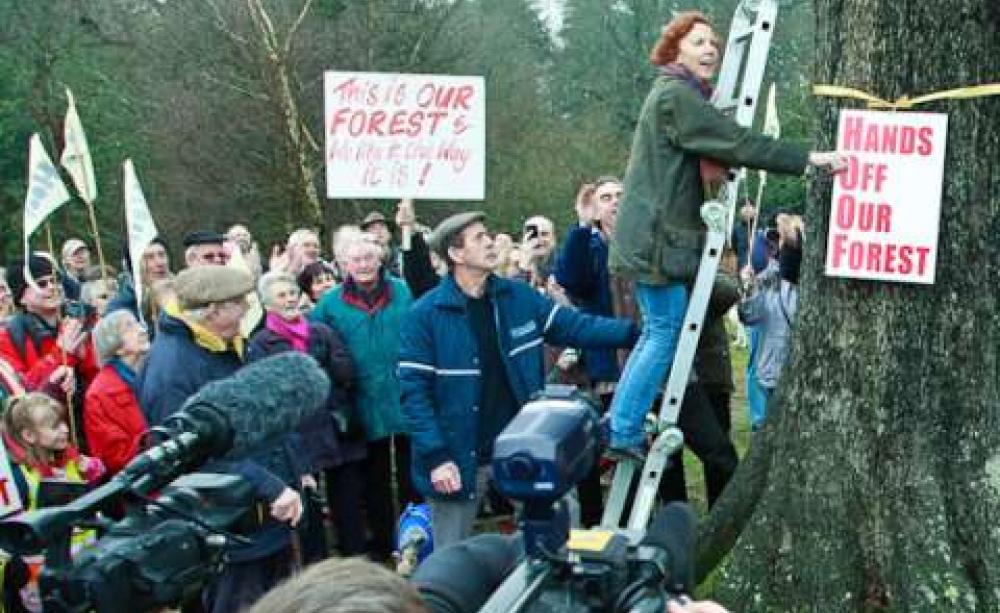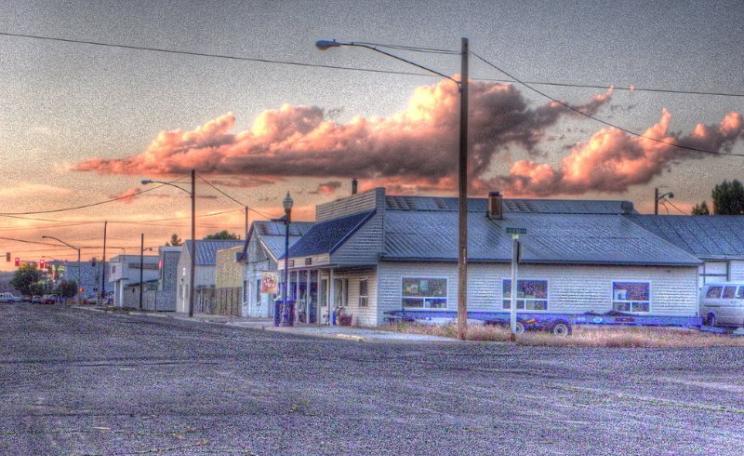This new Bill was an enabling Bill, a skeleton Bill full of Henry VIII clauses: economical in its wording with the most far-reaching implications.
The idea of selling off the Public Forest Estate presents an awkward dilemma for our neoliberal political masters.
Some 40 million people visit England's public forests every year. It's been calculated that given the £22 million per annum which it costs the Forestry Commission to provide all the public, cultural and conservation ecosystem services, produces a 'natural capital' annual return of £400 million, in terms of, for example, mental and physical health benefits.
With a return on investment (ROI) of almost 20:1, this is by any standards a good investment of public funds. By comparison the returns of the HS2 project are so poor that economists have struggled to justify a pathetic ROI of 1:1.
The Tory heartland wasn't having it
And then there's politics. The mantra of 'private good, public bad' is undermined when a billionaire gets the same pleasure from walking his dog in the woods as a socialist pauper.
The public users of our woodlands also include the Tory heartland. This was shown back in early 2011 when protests spread throughout the country, with the epicentre in the Forest of Dean.
The local MP, Mark Harper (then a junior minister, with an 11,000 majority in 2010), claimed his political opponents were responsible for making a fuss about the Public Bodies Bill, which in its original form allowed for all public forests to be 'disposed of'.
When major landowners, plus one of his campaign team - a financial adviser to the Treasury - waded in against the Bill locally and everyone from the Archbishop of Canterbury to Boris Johnson's father and sister, the Government was forced on the back foot.
It had to meekly accept the emasculation of the Bill by Bishops, Crossbench and Labour Peers, and the forests were saved.
Our forests need secure protection
A panel headed by the Bishop of Liverpool was appointed by the Government, and spent 18 months investigating forests. Their conclusion was that they needed to be protected from short-term political expediency by a Parliamentary Charter and a group of Guardians or Trustees.
Forest campaigners across the country, by and large, welcomed this recommendation. The Government also said it did, initially. And yet two years on from the Panel's final report, the Government has failed to introduce legislation, or even make progress on how it may be implemented.
Instead, a year after welcoming the Panel recommendation, the Government attempted and failed to persuade the Forest of Dean campaign group Hands Off Our Forest (HOOF) to accept a different proposal altogether, one:
- without a statutory charter for protection;
- with an all-powerful board of directors heading a public corporation, its chair appointed by the Secretary of State;
- one government minister alone able to veto any land sales, or change of use of land for 'commercial freedoms' such as mineral extraction.
A Bill has been put forward - but not the one that was promised
This new Bill was an enabling Bill, a skeleton Bill full of Henry VIII clauses: economical in its wording with the most far-reaching implications.
Defra officials said their own forestry bill was ready to roll, and HOOF and other members of the national Forest Campaigns Network urged them to show their cards and lay it before Parliament for scrutiny. The Queen's Speech on June 4 signalled that they weren't going to.
The reason, it now appears, is due to the same neoliberal push which mooted the sell-off in 2010. If campaigners and the Panel had their wishes fulfilled, the law would prevent any government from attempting privatisation further down the line.
Instead, the day after the Queen's Speech, the Government introduced the wide-ranging Infrastructure Bill.
It received - and continues to receive - scant attention in the media, and it was only when eagle-eyed members of HOOF took a look at the Bill that it felt compelled to raise the alarm.
Enabling the mass selloff of public lands and forests
Like the Public Bodies Bill, this new Bill was an enabling Bill, a skeleton Bill full of Henry VIII clauses: economical in its wording with the most far-reaching implications.
In its current form, the Bill allows any public land to be 'transferred' to the governmental Homes and Communities Agency, to developers - with little if any recourse to local planning or public scrutiny and with all restrictions, covenants, rights of way and easements waived.
Campaigners have been on the alert for biodiversity offsetting schemes, disagreeing with the idea that a site of natural importance and vitality could be destroyed if it was offset elsewhere. But this Bill doesn't even provide for any mitigation for loss of any sites.
So while the Sunday Telegraph initially spread the word about a forests sell-off in October 2010, this time around it was left to grassroots campaigners to raise the alarm via emails, social media, and a petition set up independently by a concerned HOOF supporter.
25,000 supporters in five days
Within five days it had accrued 25,000 names and despite coverage in only one regional mainstream media outlet, it was clear the Government was rattled on the day of the Bill's first debate, the Second Reading in the Lords on Wednesday June 18.
The Government issued a statement claiming that the petition was "wholly untrue", said the Bill only proposed "minor changes" to planning law, and that only "surplus" public land was involved in the transfer scheme.
Lords Adonis and McKenzie articulated many of the concerns raised in the petition, by bloggers and the alternative activists newspaper Schnews, and the end of the debate saw the Minister of Transport, Baroness Kramer, frantically scrabbling around to find what seemed to be a last-minute note.
Promises, promises
Flustered, warned she was running out of time, the Lib Dem peer said: "If I have only two minutes left, I shall do one thing which is terribly important. I switch completely to address the issue that has been floating through the media and mentioned today: concern that land transfers could affect the Forestry Commission and the national parks.
"I addressed that issue briefly at the very beginning of my speech. I am looking hard to find the comments; if anyone can hand them to me I will love them for ever."
Those next to her came to her rescue and found the comment: "I confirm that the Government are committed to England's public forest estate and national parks remaining secure in public ownership for the people who enjoy them and the businesses that depend on them.
"The measure that we discussed for the HCA is about transferring surplus land from government agencies. The public forest estate and our national parks are in use; they are therefore not surplus and none will therefore be transferred to the Homes and Communities Agency. This measure does not apply to them."
The Bill must be substantially amended
It shows that the ringing of alarm bells and petitioning had an impact - rousing the forests again would be a nightmare for the Coalition just before an election, when their own supporters are opposed to the status quo being upended.
However, without an exemption for the Public Forest Estate clearly written into the Bill, any assurances are meaningless. Getting amendments passed during the Committee and Report stages of the Bill, due to start on July 3, is the next objective of forest campaigners.
As for those wanting to protect their public land outside the forests and national parks - they need to make a fuss too, before it's too late!
Owen Adams is Secretary of Hands Off Our Forest, which campaigns to keep the Forest of Dean public.




